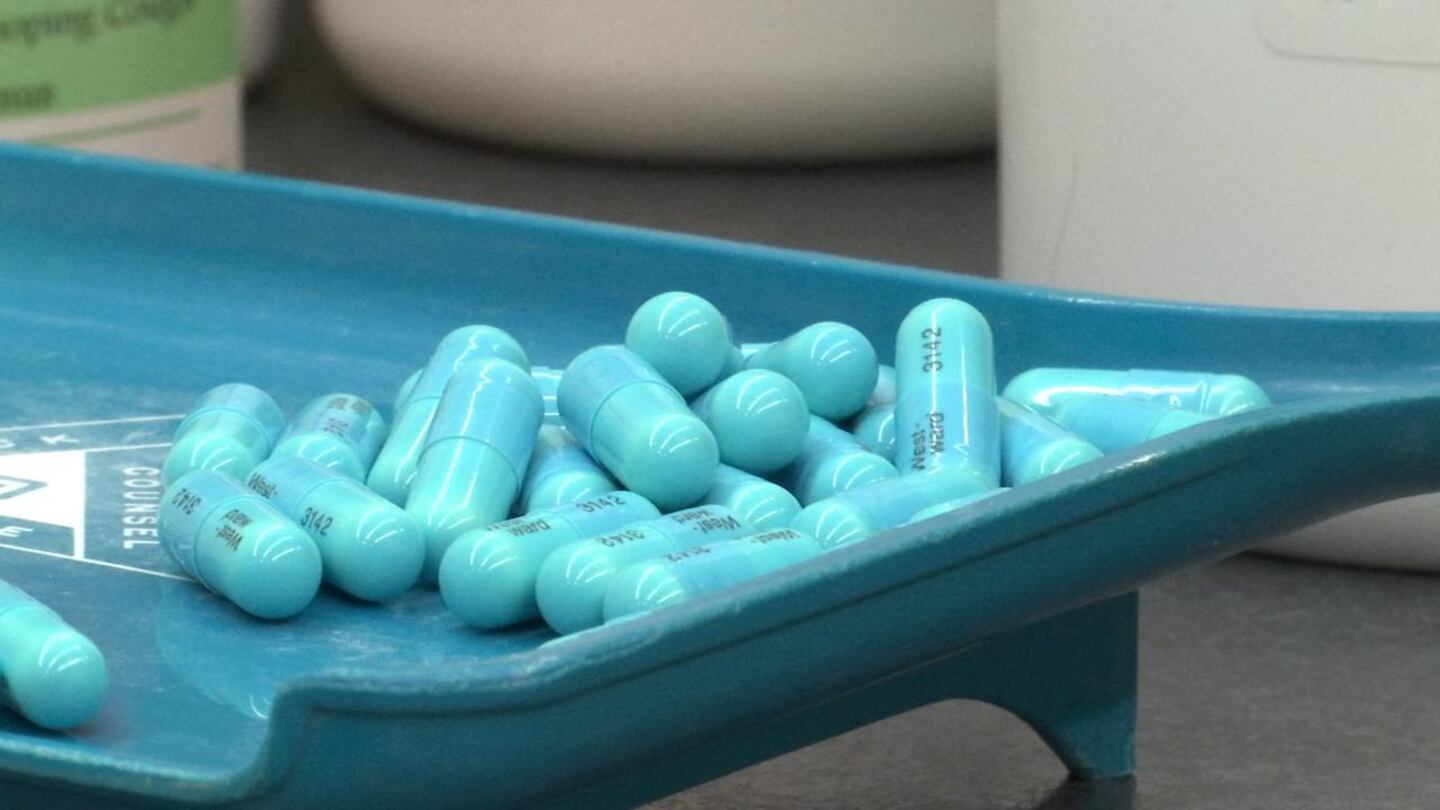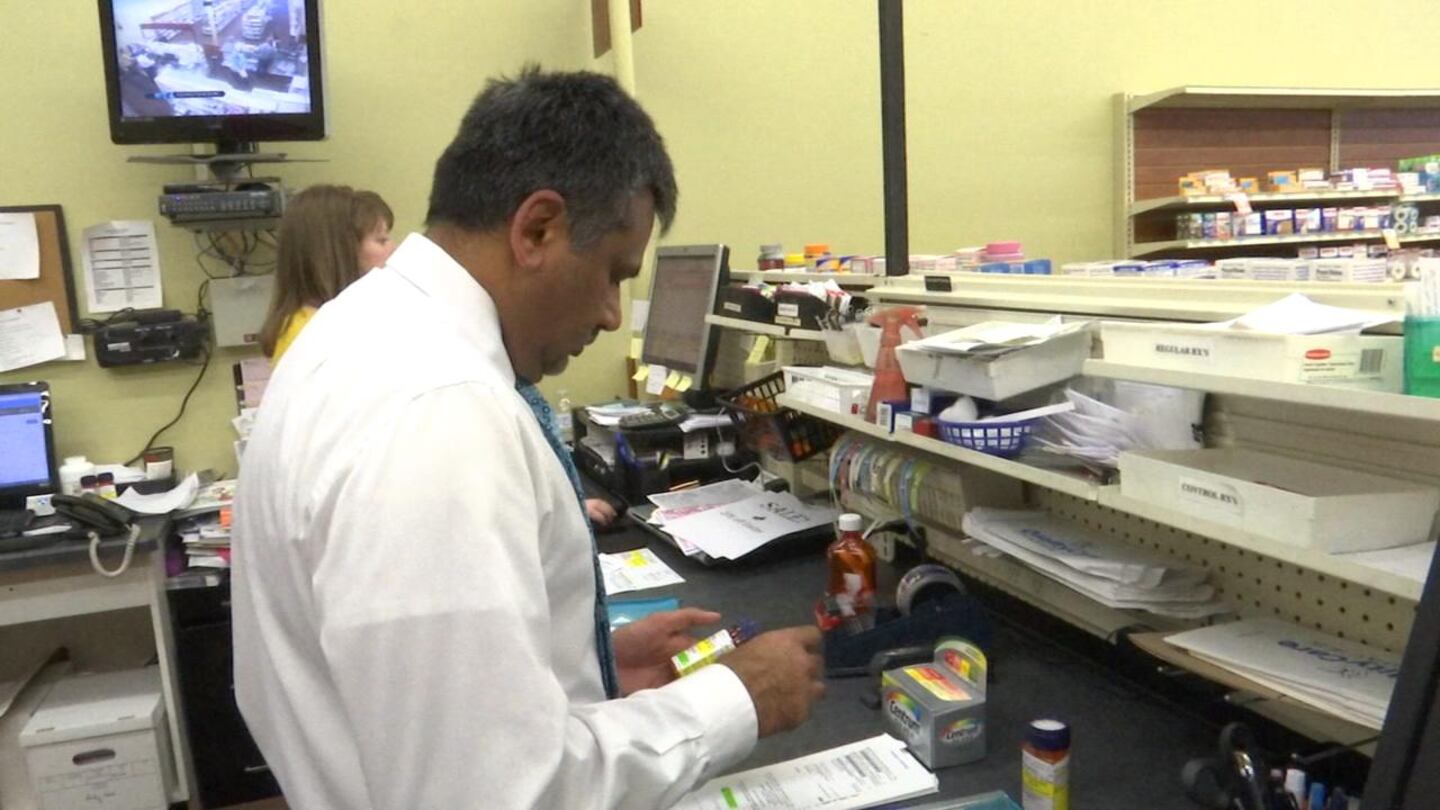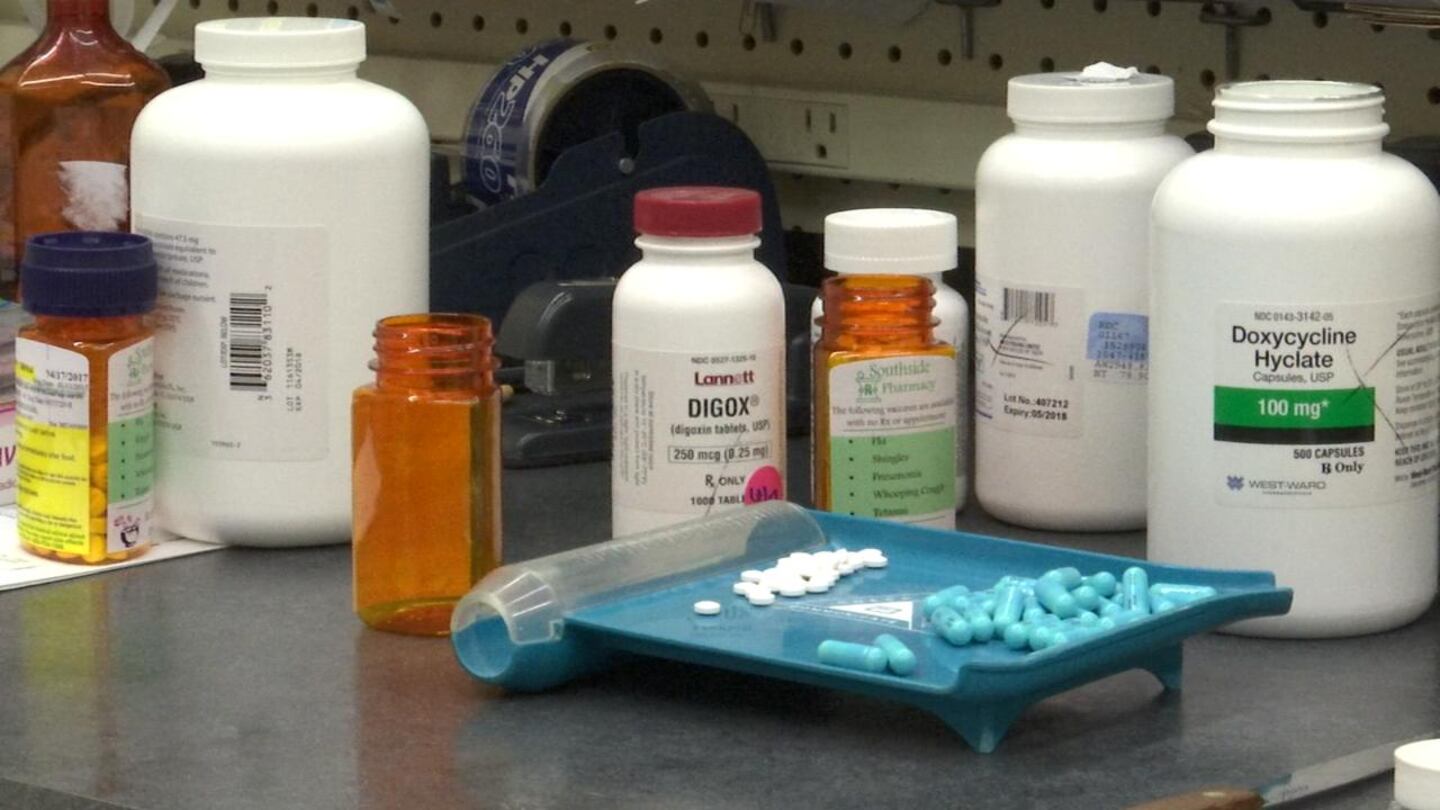A federal investigation into price fixing by generic drug companies shows no sign of slowing down.
Just last week, another drug maker disclosed the U.S. Justice Department served search warrants on its corporate offices.
The federal investigation started in 2014. Two former drug company executives have pleaded guilty to price fixing.
But the criminal investigation hasn’t helped people such as Alexandra Gorfinkel of Atlanta.
Gorfinkel has allergies. Complications from those allergies recently sent her to a doctor, and then to a pharmacy for a prescription for Doxycycline.
Doxycycline is a generic antibiotic that’s been around for decades. Five years ago, the average price in Metro Atlanta was about 50 cents a capsule. The cash price at Alexandra’s drug store? $4.43 cents a capsule. That’s a 786 percent increase.
“That’s a huge markup,” Alexandra told Channel 2 Action News “They catch you in a desperate moment. You just want to feel better and you’re going to do whatever you need to feel better.”
Alexandra was lucky because she has insurance. Because of that, her cost was less than the cash price.
People who take the medicines aren’t the only ones affected. Pharmacist Salim Sarvaiya has two pharmacies in Western New York. And when he saw the wholesale price of Doxycycline and another drug used to treat congestive heart failure called Digoxin, he had sticker shock.
"First, we called our wholesalers, thinking that the prices were wrong,” Sarvaiya said. “But then we contacted the manufacturer and they said, ‘Well, they’ve gone up.’”
It seemed like the drug companies’ price hikes were in lock-step. Sarvaiya was stuck between a high wholesale price and low reimbursements from insurance companies. Filling a prescription often meant losing money.
“Some prescriptions, we're losing maybe $100 per prescription and at that point we said, you know we can't keep doing this," Sarvaiya said.
RECENT INVESTIGATIONS:
- Does Roundup kill more than just weeds? Lawsuits claim it also causes cancer
- Family unknowingly leases dog only to find out it can be repossessed anytime
- DUIs in Georgia drop nearly 50% ... one reason why might surprise you
So he took a stand. He’s suing the makers of Doxycycline and Digoxin -- and he’s not alone. There are so many lawsuits against so many different generic drug makers that in April, a U.S. judicial panel decided to have one judge in charge of all of them.
Doctor Jeffrey Gallups says he admires the moxie of people willing to sue, but he says changing the laws could make a bigger impact.
“The federal government allows drug companies to set their own prices,” Gallups said. “It’s like a lot of industries who all of a sudden forget about the common good of the people, then they’re going to be regulated. And at this point, I think we need regulation on drug pricing.”
Mina Yun at Tuxedo Pharmacy in Buckhead said it’s a widespread problem.
“They're all pretty much doing the same thing. I think Mylan was just the one that got caught.”
Yun is referring to Mylan’s controversial hike of EpiPens by more than 500 percent. EpiPens are a lifesaving device for allergies.
“Basically, there's no good ones around, but they've all kind of jumped on to this bandwagon of inflating prices,” Yun said.
We looked up the prices of dozens of generic drugs. Digoxin, the heart-failure medication that’s part of pharmacist Salim Sarvaiya’s lawsuit, had a retail price of about $6 for 30 pills in 2012. Today, the cost is about $39. Lannett is one of a handful of companies that manufacture Digoxin. The Department of Justice has issued subpoenas to Lannett, and the company is facing multiple lawsuits over pricing.
We reached out to Lannett for a comment and no one returned our calls or email.
We listened in on a recent conference Lannett held to announce third quarter earnings for 2016.
When asked about an update on the Department of Justice Investigation, the company’s president, Arthur Bedrosian, said no one has heard from the Justice Department in months.
“So, we’re of the opinion that this has moved on to other companies and there’s no longer anything going on with Lannett,” Bedrosian said.
The New York Times reported that in March, Bedrosian boasted about his ability to keep pushing up prices. It happened at an investor’s conference in California. The New York Times cited three people who said they heard this. They didn’t want their names public because they said they were afraid of retaliation.
Last year, Lannett raised the price of an anti-psychotic drug from $43.50 for 100 pills, to $870. This month, the cost of Lannett’s generic drug used to treat irritable bowel syndrome jumped from $5.90 a bottle to $19.95.
Here are several other drugs named in the lawsuits that have had large price increases in the past five years.
| Drug Name | Used to Treat | 2012 | 2017 | % increase |
|---|---|---|---|---|
| Doxycycline (30 capsules) | Bacterial infections | $15 | $115 | 667% |
| Digoxine (.0125MG) | Congestive Heart Failure | $6 | $38.99 | 550% |
| Clobetasol (15g tube) | Rashes, Dermatitis, Eczema, Allergies | $10.99 | $103.06 | 837% |
| Desonide Ointment (15g tube) | Rashes, Dermatitis, Eczema, Allergies | $21 | $75.76 | 260% |
| Fluocinonide (15g tube) | Rashes, Dermatitis, Eczema, Allergies | $18.99 | $54.80 | 188% |
| Econazole (15g tube) | Athlete's foot and other problems | $13 | $73.87 | 468% |
| Levothyroxine (30 tablets) | Underactive thyroid | $8.99 | $21.89 | 143% |
| Propranol (30 tablets) | High blood pressure, heart rhythm disorders | $8.99 | $14.99 | 66% |
Cox Media Group







